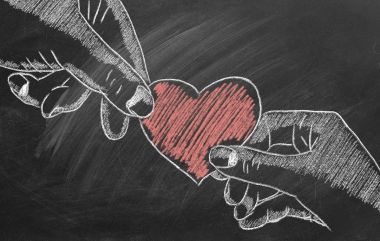There is wisdom, soul healing and power to be found through forgiveness.
 (Photo: Getty/iStock)
(Photo: Getty/iStock)In our physical world, often filled with conflicts and disagreements, where nations and neighbours seem to clash, people of faith may wonder: must hatred prevail, or can forgiveness bring about lasting peace and healing?
It is crucial to understand that challenges are a natural part of life. This generation, like those before ours, faces its own set of trials. How we navigate these difficulties shapes who we are and the path we tread in the future. Let us tread wisely.
Forgiveness, although not always easy, emerges as a crucial act of victory over futility. It offers a powerful means to break free from the chains of hatred and bitterness, providing a path towards healing and growth.
At times, forgiveness is not easy. Yes, this is most certainly true. But the alternative of being locked in a life of hatred and bitterness is not a pleasant prospect either.
The essence of forgiveness can be overshadowed by the assumption that the wrongdoer must seek forgiveness, meet our conditions, and bear the weight of their actions. However, this perspective falls short of a profound truth. In reality, withholding forgiveness only prolongs our own suffering, providing little true retribution for the offender. Let us explore the transformative potential of forgiveness, emphasising its deep impact on personal healing and growth.
The notion that withholding forgiveness grants us leverage over an abuser is a deception. In truth, it is we who bear the heavy burden of resentment, not them.
As the scriptures remind us, "And whenever you stand praying, forgive, if you have anything against anyone, so that your Father, also who is in heaven, may forgive you your trespasses" (Mark 11:25). By holding onto our anger and pain, we inadvertently allow the wounds inflicted upon us to fester, further solidifying their influence over our lives. This cycle perpetuates our own suffering, hindering our ability to move forward and find closure.
Refusing to forgive amounts to a second injury we inflict upon ourselves, compounding the harm caused by the initial transgression. It's akin to reopening a wound that had begun to heal, leaving us ensnared in a state of perpetual anguish. This perspective serves as a poignant reminder of the gravity of our grudges and the urgency of releasing them.
Amidst the call for forgiveness, the question persists: how does one truly forgive? Forgiveness is not a simple act, but rather a multifaceted process that demands introspection, empathy, and a genuine willingness to let go of resentment. It involves acknowledging the pain, understanding the humanity of the wrongdoer, and ultimately choosing to release the emotional shackles that bind us to the past.
To forgive is to acknowledge the shared humanity that unites us all, recognising that every individual is capable of both kindness and transgression, allowing us to see the bigger picture. It is through this lens of compassion that we can begin to understand the complexities that drive human behaviour, nurturing a sense of grace that paves the way for forgiveness.
Forgiveness is not synonymous with condoning or excusing the actions of others. Instead, it is a conscious decision to free ourselves from the burden of resentment, to reclaim agency over our own emotional and spiritual well-being. As it is written, "Be kind and compassionate to one another, forgiving each other, just as in Christ God forgave you" (Ephesians 4:32).
In an earthly world that seems to prioritise retribution over reconciliation, the true power of forgiveness emerges as a beacon of healing.
For those who draw strength from their Christian faith, it is an embodiment of Christ's teachings, a gift we give to ourselves, a profound act of faith and self-love that transcends the boundaries of time and space. To forgive, truly, is divine.
Through the act of forgiveness, guided by our Christian beliefs, we embark on a journey towards liberation, allowing us to embrace the fullness of our own humanity and find solace in the power of Christ's transformative love and His soul healing grace.
Duncan Williams is outreach director for the Christian Free Press and has worked for Son Christian Media here in the UK and Recovery Network Radio in the United States. He is an ordained minister and a long-term member of Christians in Media. He provides content and syndicated news for regional publisher www.tindlenews.co.uk

.jpeg)